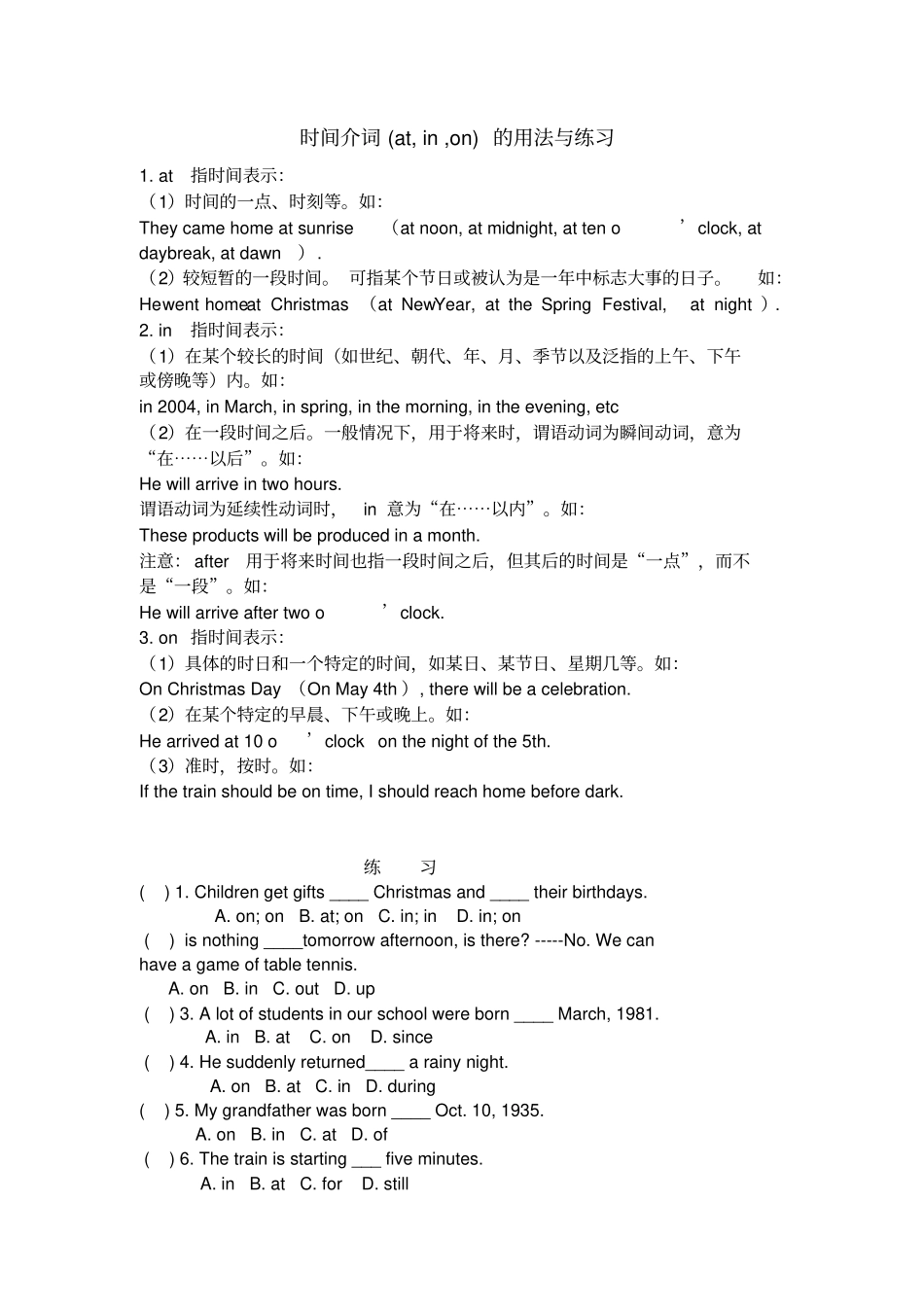时间介词 (at, in ,on) 的用法与练习1. at指时间表示:(1)时间的一点、时刻等。如:They came home at sunrise (at noon, at midnight, at ten o’clock, at daybreak, at dawn). (2)较短暂的一段时间。 可指某个节日或被认为是一年中标志大事的日子。如:He went home at Christmas (at New Year, at the Spring Festival, at night ). 2. in指时间表示:(1)在某个较长的时间(如世纪、朝代、年、月、季节以及泛指的上午、下午或傍晚等)内。如:in 2004, in March, in spring, in the morning, in the evening, etc (2)在一段时间之后。一般情况下,用于将来时,谓语动词为瞬间动词,意为“在⋯⋯以后”。如:He will arrive in two hours. 谓语动词为延续性动词时,in 意为“在⋯⋯以内”。如:These products will be produced in a month. 注意: after用于将来时间也指一段时间之后,但其后的时间是“一点”,而不是“一段”。如:He will arrive after two o’clock. 3. on 指时间表示:(1)具体的时日和一个特定的时间,如某日、某节日、星期几等。如:On Christmas Day (On May 4th ), there will be a celebration. (2)在某个特定的早晨、下午或晚上。如:He arrived at 10 o’clock on the night of the 5th. (3)准时,按时。如:If the train should be on time, I should reach home before dark. 练习( ) 1. Children get gifts ____ Christmas and ____ their birthdays. A. on; on B. at; on C. in; in D. in; on ( ) is nothing ____tomorrow afternoon, is there? -----No. We can have a game of table tennis. A. on B. in C. out D. up ( ) 3. A lot of students in our school were born ____ March, 1981. A. in B. at C. on D. since ( ) 4. He suddenly returned____ a rainy night. A. on B. at C. in D. during ( ) 5. My grandfather was born ____ Oct. 10, 1935. A. on B. in C. at D. of ( ) 6. The train is starting ___ five minutes. A. in B. at C. for D. still ( ) 7. Mike does his exercises ____ seven _____ the eve...


